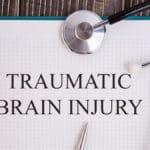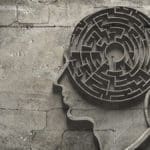The symptoms of grief and depression are closely related and it can be confusing to differentiate between the two.
What Are the Symptoms of Grief vs. Depression
Grief
Grief typically happens after a loss. Usually, if people are grieving, they have just lost a loved one or something for which they cared deeply. You may also experience grief after a medical diagnosis for yourself or a loved one.
When you are grieving, the feeling of sadness may come in waves. As you are going through it, you may feel fine at some points, while at other moments, you wonder if the sadness will ever go away. Normal grief will often occur for a period of months but should get better over time. During this time, you may feel sorrow, anger, numbness, or even guilt. If these feelings do not resolve themselves, you may have complicated grief.
Complicated grief is a heightened state of mourning that keeps you from healing. The symptoms of complicated grief and normal grief look similar, but if your grief lasts for more than a few months, it is likely complicated. Here are a few of the symptoms of complicated grief:
- Intense sorrow, pain, and rumination over the loss of your loved one
- Focus on little else but your loved one’s death
- Extreme focus on reminders of the loved one or excessive avoidance of reminders
- Intense and persistent longing or pining for the deceased
- Problems accepting the death
- Have trouble carrying out routines
- Isolate from others and withdraw from social activities
- Experience depression, deep sadness, guilt or self-blame
- Belief that you did something wrong or could have prevented the death
Without the proper medical attention, complicated grief can cause serious medical conditions, such as anxiety, PTSD, substance abuse, and suicidal thoughts.
Especially if these symptoms last longer than a year, you should contact your healthcare provider because your grief may be turning into depression.
Depression
Grief usually resolves with time. Depression can be lifelong and debilitating. Major Depressive Disorder (MDD) is one type of depression that can cause lifelong problems. Some of the symptoms of depression can include:
- Feeling sad or having a depressed mood
- Loss of interest or pleasure in activities once enjoyed
- Changes in appetite — weight loss or gain unrelated to dieting
- Trouble sleeping or sleeping too much
- Loss of energy or increased fatigue
- Feeling worthless or guilty
- Difficulty thinking, concentrating, or making decisions
Grief vs. Depression
The death of a loved one, loss of a job or the ending of a relationship are difficult experiences for a person to endure. It is normal for feelings of sadness or grief to develop in response to such situations. Those experiencing loss often might describe themselves as being “depressed.”
But being sad is not the same as having depression. The grieving process is natural and unique to each individual and shares some of the same features of depression. Both grief and depression may involve intense sadness and withdrawal.
They are also different in important ways:
- In grief, painful feelings come in waves, often intermixed with positive memories of the deceased. In major depression, mood and/or interest (pleasure) are persistently impaired for at least two weeks.
- In grief, self-esteem is usually maintained. In major depression, feelings of worthlessness and self-loathing are common.
- In grief, thoughts of death may surface when thinking of or fantasizing about “joining” the deceased loved one. In major depression, thoughts are focused on ending one’s life due to feeling worthless or undeserving of living or being unable to cope with the pain of depression.
Grief and depression can also co-exist. When grief and depression co-occur, the grief is more severe and lasts longer than grief without depression.
Distinguishing between grief and depression is important and can assist people in getting the support or treatment they need. Often, when people are grieving, they hold their feelings in and don’t talk about them, which can be detrimental to the healing process. Talking about your problems and allowing yourself to feel sad will help you recover. Additionally, with counseling after a loss, you can explore emotions surrounding your loss and learn healthy coping skills.
Discover New Treatment Options With Mid City TMS
Though depression and grief overlap in some ways, the treatment plans for these two conditions are different. Transcranial magnetic stimulation (TMS) is one of the most effective treatments available for depression. It uses focused magnetic pulses to activate specific areas of your brain where low activity causes depression. TMS is an effective, safe, nonconvulsive, and noninvasive brain stimulation procedure that has been in use since 1985 and has been approved by the Food and Drug Administration (FDA) since 2008.
Contact us if you have any questions; our excellent care team would be happy to talk with you.



